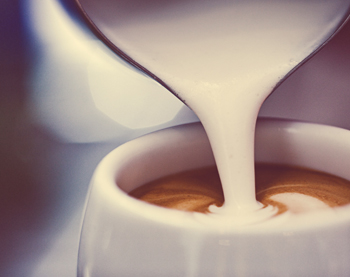 While every individual is different, there are certain foods that are known to cause digestive problems in a majority of patients. Digestive problems are a trigger that can lead people to visit a doctor and ultimately undergo an ERCP procedure. While ERCP procedures are fairly common, they can be dangerous and cause life-ending or debilitating problems.
While every individual is different, there are certain foods that are known to cause digestive problems in a majority of patients. Digestive problems are a trigger that can lead people to visit a doctor and ultimately undergo an ERCP procedure. While ERCP procedures are fairly common, they can be dangerous and cause life-ending or debilitating problems.
One way to avoid an ERCP procedure is to maintain digestive health. For patients experiencing chronic digestive problems, it may be helpful to avoid these foods and make note of improvements over a period of time. When avoiding foods, it may also be useful for the patient to make note of the types of digestive complications associated with the foods. This may assist doctors in ordering the correct tests to identify food allergies and other complications that may contribute to digestive disorders.
Dairy Products
Dairy products are difficult for many individuals to digest. Dairy products often contain lactose, which requires an enzyme called lactase to digest. Many individuals do not contain adequate amounts of this enzyme, and cannot digest lactase properly. This is referred to as being lactose intolerant, and can cause gas, bloating, and diarrhea when lactose is consumed. The National Institute of Diabetes and Digestive and Kidney Diseases estimates that about 30 to 50 million Americans are lactose intolerant.
Fatty Foods
Foods which are high in fat, especially fried foods, cause the digestive tract to contract. This can cause cramping, constipation, or diarrhea. Fatty foods are also generally low in fiber, which may delay digestion and prolong symptoms. The specific symptoms may vary depending on the type of fat which is consumed and the tendencies of the individual.
Spicy Foods
Spicy foods can be healthy in moderation, but can cause digestive problems in some. Spicy foods stimulate the digestive tract, which can cause diarrhea in sensitive patients. Patients may benefit from limiting spices for a period of time to see if digestive problems improve.
Caffeinated Foods and Beverages
Caffeine helps food to move quickly through the digestive tract. If individuals are already prone to diarrhea, caffeine may worsen the problem. Excessive consumption of caffeinated beverages and foods such as chocolate, coffee, soda, and tea may cause patients to develop diarrhea.
Alcoholic Beverages
Alcohol is detrimental to the stomach lining, which can cause stomach upset and nausea. Excessive alcohol consumption can lead to diarrhea, bloating, and other digestive problems. Alcohol also contains no nutrients to aid in healthy digestion.
Foods Containing Sorbitol
When sorbitol reaches the intestines, it often causes bloating, nausea, and gas. Foods naturally containing sorbitol include apples, plums, and prunes. Sorbitol is also commonly used as an artificial sweetener in many gums and diet foods. Certain patients may be more sensitive to sorbitol than other and may become ill after exposure to a small amount of the chemical.
“Diarrhea.” National Digestive Diseases Information Clearinghouse (NDDIC). National Digestive Diseases Information Clearinghouse (NDDIC), 25 Nov. 2013. Web. 16 Sept. 2014. <http://digestive.niddk.nih.gov/ddiseases/pubs/diarrhea/index.aspx>
“IBS Diet: What to Do and What to Avoid.” International Foundation for Functional Gastrointestinal Disorders. International Foundation for Functional Gastrointestinal Disorders, 15 Sept. 2014. Web. 16 Sept. 2014. <http://www.aboutibs.org/site/treatment/diet/what-to-do>
“Problems Digesting Dairy Products?” U.S. Food and Drug Administration. U.S. Food and Drug Administration, 1 Oct. 2009. Web. 16 Sept. 2014. <http://www.fda.gov/downloads/ForConsumers/ConsumerUpdates/UCM143705.pdf>
